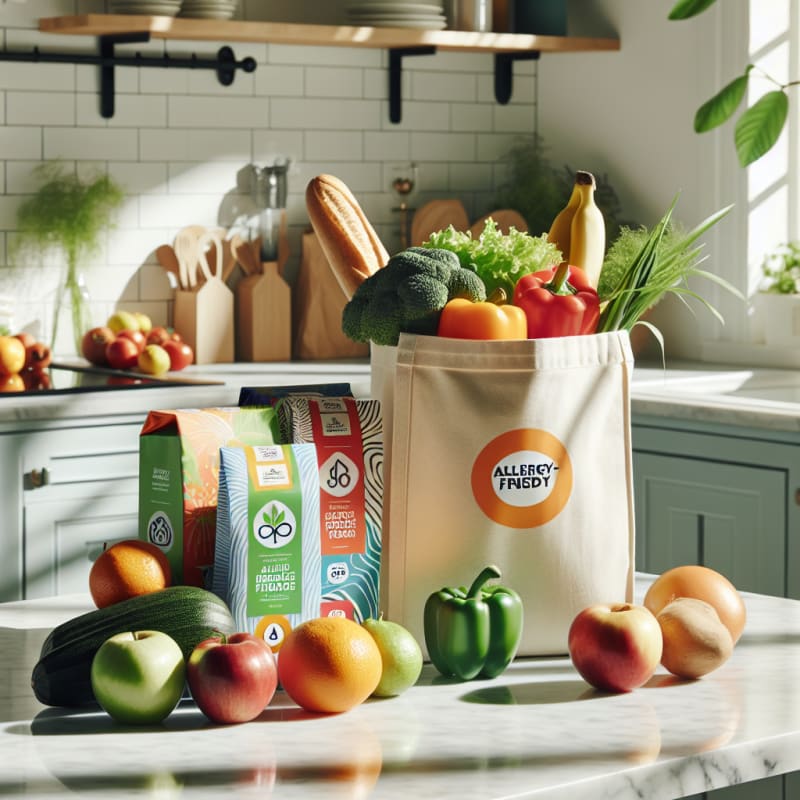Everyday Foods That Can Cause Allergies: What You Need to Know in 2025
Food allergies affect millions worldwide, and everyday foods can trigger reactions ranging from mild discomfort to life-threatening anaphylaxis. With evolving food safety regulations, new dietary trends, and frequent product recalls, staying informed is crucial for anyone concerned about food ingredients—whether for health, ethical, or lifestyle reasons. This article, referencing The Indian Express, helps you identify common allergenic foods, understand global labeling laws, and leverage technology like Food Scan Genius for safer food choices.
Common Everyday Foods That Cause Allergies
According to the FDA and EFSA, the following foods are responsible for the majority of allergic reactions:
| Allergen | Typical Foods | Symptoms |
|---|---|---|
| Milk | Dairy products, baked goods, chocolate | Hives, vomiting, respiratory distress |
| Eggs | Baked goods, mayonnaise, pasta | Skin reactions, stomach pain |
| Peanuts | Snacks, sauces, desserts | Anaphylaxis, swelling, rash |
| Tree Nuts | Almonds, walnuts, pesto | Throat tightness, breathing issues |
| Wheat | Bread, cereals, pasta | Digestive upset, skin reactions |
| Soy | Tofu, soy milk, processed foods | Itching, swelling, stomach issues |
| Fish | Seafood, sauces, sushi | Hives, breathing difficulty |
| Shellfish | Shrimp, crab, lobster | Anaphylaxis, nausea |
| Sesame | Hummus, tahini, bakery items | Swelling, skin rash |
Emerging Allergens and Trends
- Plant-based proteins (pea, lentil, chickpea): Increasing in popularity, but can trigger allergies in some (PubMed).
- Gluten alternatives: Some gluten-free products contain new ingredients (like buckwheat or quinoa) that may cause unexpected reactions.
- Food additives: Colorings, preservatives, and emulsifiers are increasingly scrutinized for allergenic potential (EFSA).
Recent News: Food Safety Alerts & Regulatory Updates
- Product Recalls: In June 2024, several snack brands were recalled due to undeclared allergens, as reported by Food Safety News. Always check the latest recall lists before purchasing packaged foods.
- Labeling Laws: The US FDA now requires sesame to be listed as a major allergen, while the EU’s EFSA mandates clear labeling for 14 allergens. See the FDA’s FALCPA and EFSA’s guidance for details.
- Dietary Trends: Plant-based and keto diets are reshaping ingredient lists, but new sources like pea protein and almond flour may introduce allergens. The Indian Express highlights how these trends can impact allergy sufferers.
- Brand Updates: Major food brands are reformulating products for cleaner labels and allergen transparency, responding to consumer demand for safer options (Food Dive).
Global Comparison: US vs EU Ingredient Labeling Laws
| Region | Required Allergen Disclosure | Authority |
|---|---|---|
| United States | Milk, eggs, fish, shellfish, tree nuts, peanuts, wheat, soy, sesame | FDA |
| European Union | 14 allergens including celery, mustard, lupin, molluscs | EFSA |
Both regions require clear allergen labeling, but the EU covers more ingredients. Always read labels carefully, especially when traveling or buying imported products.
How Food Scan Genius Simplifies Safe Food Choices
Food Scan Genius empowers users to make informed decisions by scanning product barcodes and instantly revealing allergens, ingredient sources, and dietary suitability. The app supports US and EU labeling standards, helping users avoid hidden allergens and stay updated on recalls and regulatory changes.
- Scan any packaged food for instant allergen info
- Set preferences for vegan, keto, gluten-free, or allergen-free diets
- Get real-time alerts on product recalls and ingredient changes
User Testimonial: “Food Scan Genius helped me avoid a hidden peanut ingredient in a snack I almost bought. I love how it keeps me updated on recalls and new labeling laws. Highly recommend for anyone with food allergies!” – Priya S., Mumbai
Download the app at scangeni.us and take control of your food choices today.
FAQ: Everyday Food Allergies
What are the most common food allergens?
Milk, eggs, peanuts, tree nuts, wheat, soy, fish, shellfish, and sesame are the most common allergens, as recognized by the FDA and EFSA.
How do new labeling laws affect allergy sufferers?
New laws require clearer disclosure of allergens, making it easier for consumers to avoid unsafe products. For example, sesame is now required on US labels, and the EU lists 14 allergens.
Can plant-based foods cause allergies?
Yes, ingredients like pea protein, chickpeas, and nuts used in plant-based foods can trigger allergies in sensitive individuals.
How can Food Scan Genius help with food allergies?
Food Scan Genius scans product labels for allergens, dietary preferences, and recalls, helping users make safe choices instantly.
Conclusion: Make Smarter, Safer Food Choices
Understanding which everyday foods can cause allergies—and staying updated on food safety alerts, labeling laws, and ingredient trends—is essential for everyone, especially those with sensitivities or dietary preferences. By reading labels, following regulatory updates, and using tools like Food Scan Genius, you can confidently navigate the modern food landscape and protect your health. Download Food Scan Genius at scangeni.us to simplify smart food choices every day.





